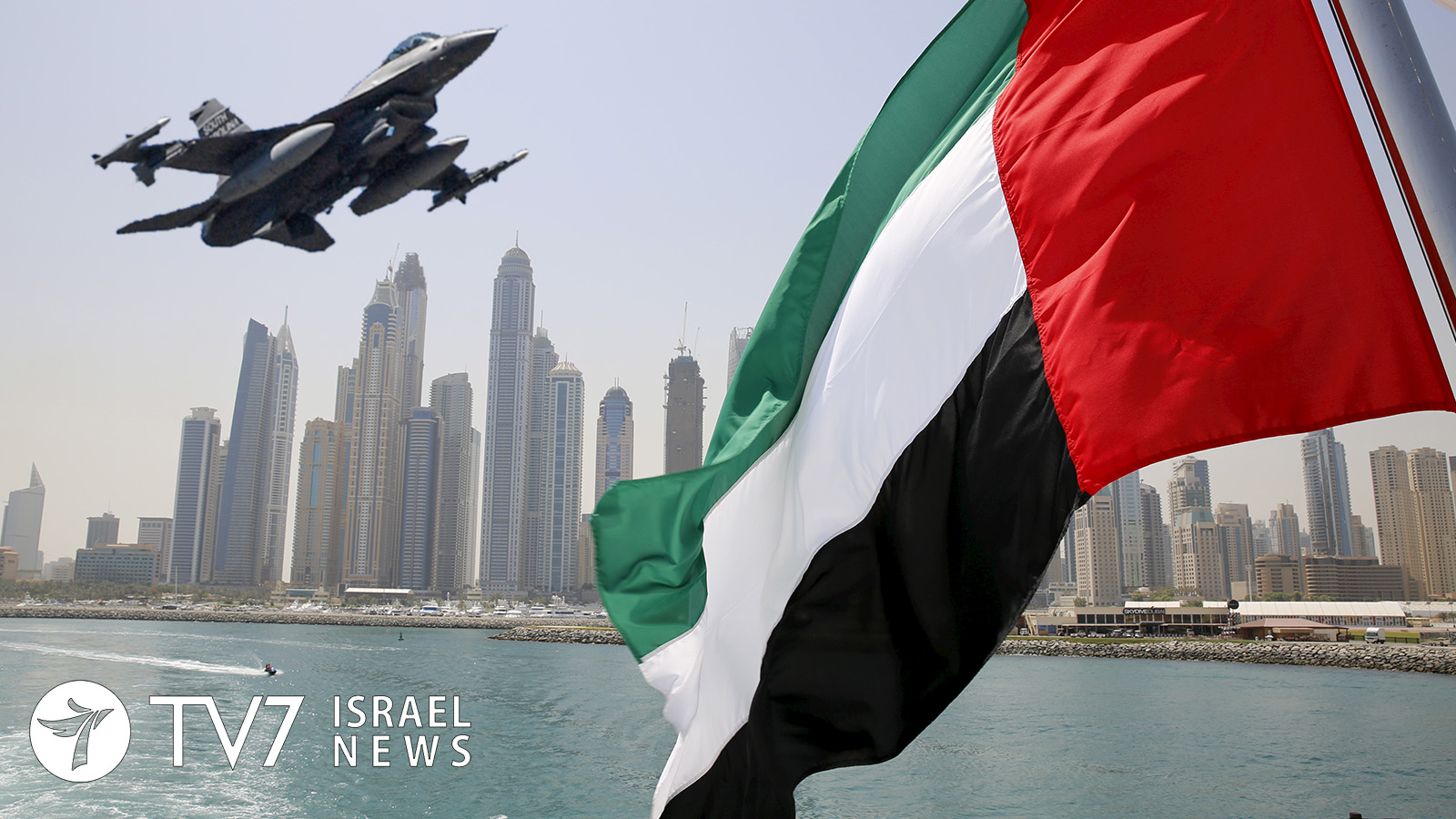Alternate Premier and Defense Minister Benny Gantz held a press briefing during which he hailed the nation’s peace agreement with the United Arab Emirates as “an important accord with great potential for regional development that is highly desired for the State of Israel.”
Gantz asserted that while the accord with the Arab nation should be advanced, it should not come at the expense of Israel’s security interests. This, after it emerged that the pact included a secret, critical clause enabling the United States’ sale of 5th–generation F-35 fighter jets to the UAE. This is an evident point of contention for Jerusalem’s defense establishment that went unmentioned during the deal’s declaration – bypassing long-standing objection to the provision of strategic weapon systems to other countries in the volatile region. Until now, Washington has traditionally refrained from shifting the regional power balance to assure Israeli military superiority.
After describing the F-35 as “is the most advanced operational aircraft worldwide,” Gantz underscored that, “It is not good for Israel that this aircraft is present in other places (Mideast). But, this is not the place to discuss this matter; We must speak with the UAE and Americans to assure that our security interests are kept. Not in the form of general statements, but in concrete discussions.”
The former IDF Chief of Staff and Lt. Gen. (res.) said he would discuss the deal with the UAE Defense Minister in tandem with talks Israeli Foreign Minster Gabi Ashkenazi is holding with his own UAE counterpart. “We will support this government effort, while we will assure thoroughly that Israel’s security interests are preserved. It is possible to make peace while exercising defensive responsibility,” stated Gantz.
Gantz’ remarks come in the wake of vocal opposition to the Israeli-Emirati accord from Palestinian leaders including Prime Minister Mohammad Shtayeh,, who is considered as a “moderate” by the international community. He condemned “normalization of relations between the State of the Emirates and the State of Occupation” as “unacceptable.” He also proclaimed that “The intruder Israel is the common enemy of the Arabs,” and maintained it is forbidden for Muslims to pray at the al Aqsa Mosque on the Temple Mount in Jerusalem’s Old City as long as it is “under Israeli sovereignty.” Such rhetoric has subsequently exacerbated hostilities on Palestinian streets, with protests against the United Arab Emirates erupting at several locations across the West Bank and Gaza Strip. The repeated burning of Emirati flags and posters depicting UAE Crown Prince Mohammad Bin-Zayed as a traitor led one Israeli lawmaker to deliver a scathing warning to the Palestinian public. “For the Palestinian brothers, I want to give you some brotherly advice, Emirati citizens are different to Israelis and Americans,” said Yisrael Beiteinu Party Knesset member Eli Avidar. “You are used to burning our flags every morning – and you beg for our aid in the afternoon. The people of the Emirates are different, it’s an Arab nation which has dignity; they will not forget. Your brothers who reside in the Emirates will be expelled due to your attitudes. For once you have to think with a logic or at least think,” he said, in a reminder of how Kuwait deported all Palestinians during the 1991 Gulf War after their leaders sided with Iraq.
Turning to other security developments at the same news conference, Defense Minister Gantz said the military is “prepared and alert on all of our fronts – the north, center and south.”
He then warned that Hamas must immediately end the recent spate of airborne terror attacks on southern Israel or pay a heavy price. “The IDF operates constantly; will operate all the time. It is obvious, I will not unveil our future operational plans – but they may occur,” he said.
When asked about the situation on Israel’s northern front, Defense Minister Gantz leveled a warning to the enemies of the Jewish State. “I do not accept any harm of IDF soldiers, and I do not accept that the operations to our north will be ceased, either in Lebanon or in Syria – so far that is necessary to assure Israel’s security. We do not have any interests in the northern arena other than preserving security. We insist to safeguard our security interests also by means of operational activities. And to whomever harms any IDF soldier: know the other side will be hurt severely,” he vowed.
Specifically with regard to Iran’s proxy in Lebanon, Hezbollah, Gantz cautioned that the 4 August explosion at the Beirut Port is likely to reoccur due to the deployment of Hezbollah missiles throughout the country. “You have rooms with missiles, and guest rooms in the same residence. What will happen when this missile explodes? Will the guests continue to drink tea at the same time? This disaster will reoccur – it is completely obvious. I really hope that they (Hezbollah) will not challenge me, but I am ready for the challenge.”
